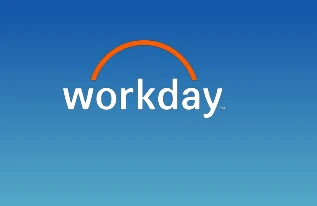EU Intensifies Sanctions on Russia Amidst Ongoing Ukraine Conflict
The European Union has ramped up sanctions against Russia in response to the escalating conflict in Ukraine. This article explores the latest measures, their intended economic impact, and the broader geopolitical consequences. As the war drags on, the EU’s strategy signals a hardened stance aimed at pressuring Moscow through tightened restrictions and diplomatic isolation.

As the conflict in Ukraine stretches into another year, the European Union (EU) is ramping up efforts to tighten the economic vise around Russia. This latest round of sanctions is more than just a diplomatic rebuke; it represents a potent tool in the EU’s strategy to weaken Moscow’s capacity to wage war while projecting unity on the global stage. But how effective are these measures, and what do they reveal about shifting geopolitical dynamics?
For those monitoring the evolving landscape of global power—whether in energy markets, diplomacy, or broader strategic movements—it is clear that the EU's sanctions package is not merely a symbolic gesture. It is a calculated response, one designed to cripple Russia’s war machine and underscore the EU’s commitment to supporting Ukraine in its struggle for sovereignty.
The EU’s Escalating Response to Russian Aggression
The EU’s approach to Russia’s invasion of Ukraine has evolved considerably since February 2022. Initially, sanctions were seen as a diplomatic tool, aimed at signaling discontent and pushing Russia towards negotiations. However, as the war has dragged on, the EU has sharpened its focus, targeting critical sectors of Russia’s economy and military apparatus. This shift signals a transition from symbolic opposition to a sustained campaign designed to inflict lasting damage on Russia's war capacity.
The answer lies in the escalation of Russian military aggression. Moscow’s attacks have intensified, with the destruction of vital Ukrainian infrastructure and increasing civilian casualties. These acts have galvanized the EU’s resolve—not only to support Ukraine but also to hold Russia accountable. While debates continue within the union over the economic repercussions of these sanctions, the political unity on this issue has been undeniable. The EU’s collective action speaks to the growing recognition that the long-term cost of inaction far outweighs short-term economic sacrifices.
Economic and Strategic Targets of the Sanctions
The latest round of EU sanctions zeroes in on the heart of Russia’s economic and military strength. The measures are multifaceted, targeting critical sectors that sustain the Russian state and its war efforts.
Energy remains the most high-profile target. Russia’s vast energy exports—particularly oil and natural gas—have been a central pillar of its economy. The EU has steadily reduced its dependency on Russian energy sources, although this shift presents significant challenges. These sanctions not only disrupt Russia’s revenue streams but also force Moscow to seek alternative markets in Asia and the Middle East, where geopolitical alliances are more fluid.
Banking and finance are another key focus. By cutting off Russian banks from the SWIFT international payment system, the EU has severely hampered Russia’s ability to conduct business globally. This financial chokehold aims to deplete Moscow’s resources, making it harder for the government to fund military operations or mount an economic recovery.
Dual-use technologies—those that have both civilian and military applications—are also on the EU’s radar. By restricting Russia’s access to advanced technology such as semiconductors and specialized machinery, the EU hopes to slow the country’s military advancements. This is part of a broader strategy to curb Russia’s ability to sustain its war efforts through technological innovation.
Beyond these sector-specific sanctions, the EU has also targeted Russia’s political elite. By freezing assets and imposing travel bans on individuals close to the Kremlin, the EU seeks to isolate the decision-makers who fuel Russia’s aggression. The goal is clear: to create internal pressure on those who profit from the war while severing their access to the global economy.
Global Ramifications and Russia’s Countermoves
The EU’s sanctions are not contained within the borders of Europe—they have a far-reaching impact on the global economy and international diplomacy. At their core, the EU sanctions aim to weaken Russia’s military and economic foundation, thereby bolstering Ukraine’s ability to resist. By destabilizing Russia’s economic base, the EU indirectly supports Ukraine’s defense efforts, diminishing Russia’s capacity to continue its aggressive military campaigns. With each new wave of sanctions, Moscow’s ability to prosecute the war becomes increasingly strained, creating a sense of urgency among Russian officials to either escalate or seek negotiations.
In response to Western sanctions, Russia has sought to pivot its trade relationships. Nations such as China, India, and several Middle Eastern states have emerged as new partners in a rapidly evolving trade network. While this shift allows Russia to bypass some of the Western restrictions, its long-term sustainability remains uncertain. These countries, though more willing to engage with Russia, are themselves wary of Western influence and could face diplomatic backlash as a result of their dealings with Moscow.
As the sanctions continue to deepen, they signal a larger transformation in international norms. Western powers, particularly the EU, are increasingly adopting an aggressive stance against state-sponsored aggression. Russia’s retaliatory actions—sanctioning European officials and escalating military responses—only heighten global tensions. This raises important questions about the future of international law and the legitimacy of sanctions as a mechanism for maintaining global peace.
The question on many minds is whether these sanctions will eventually bring Russia to the negotiating table. Predicting the outcome is difficult. However, one certainty is that the EU's steadfast commitment to this sanctions regime will continue to have profound consequences on Russia’s war effort, its economy, and its international standing. The mounting pressure is bound to test Moscow’s ability to sustain the conflict.
Yet, this approach brings with it a host of unanswered questions. What will be the long-term impact on global markets? How will the evolving alliances between Russia and non-Western powers shape the future of international trade? And, perhaps most crucially, what will this mean for European unity as the geopolitical stakes continue to rise? Ultimately, the sanctions are more than just a temporary measure—they are part of a larger strategy to deter aggression and restore international stability. While challenges remain, the EU’s unwavering determination to exert this pressure proves that even in the face of adversity, global cooperation can be a formidable force for change.









/cloudfront-us-east-1.images.arcpublishing.com/gray/RDUJBOYFCBAXRCGGFYQPQNOF5Q.jpg)

